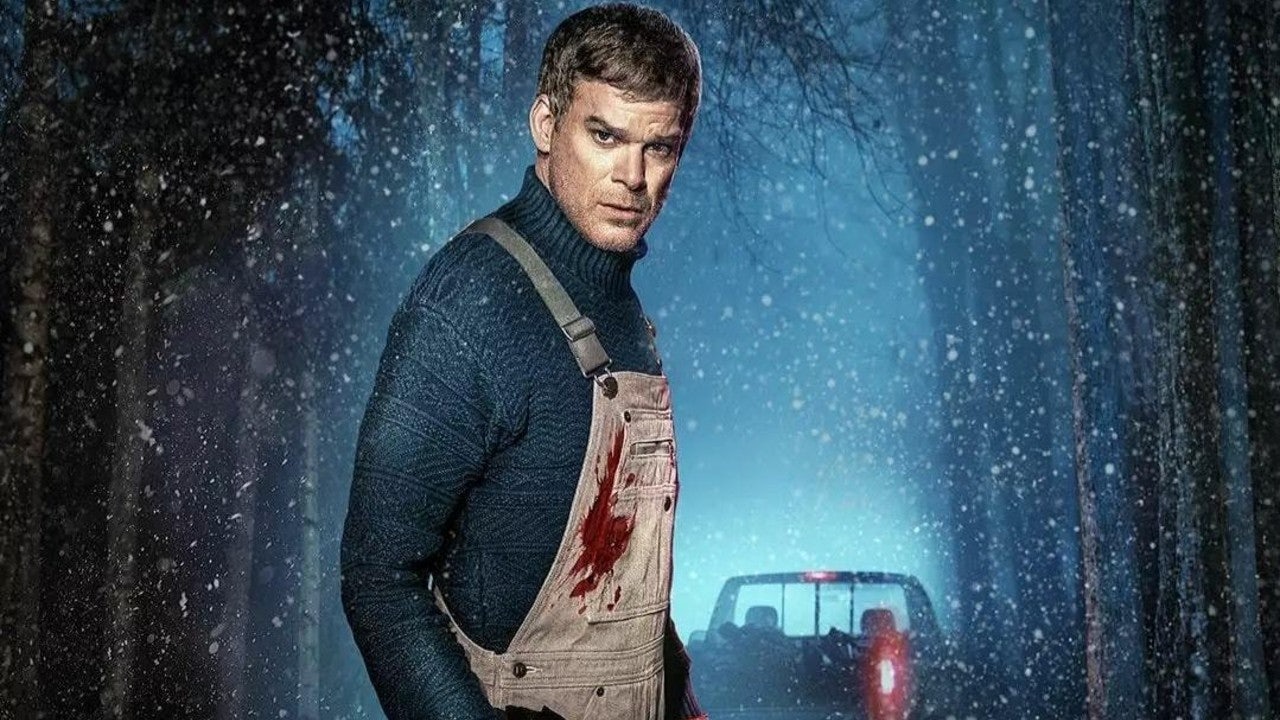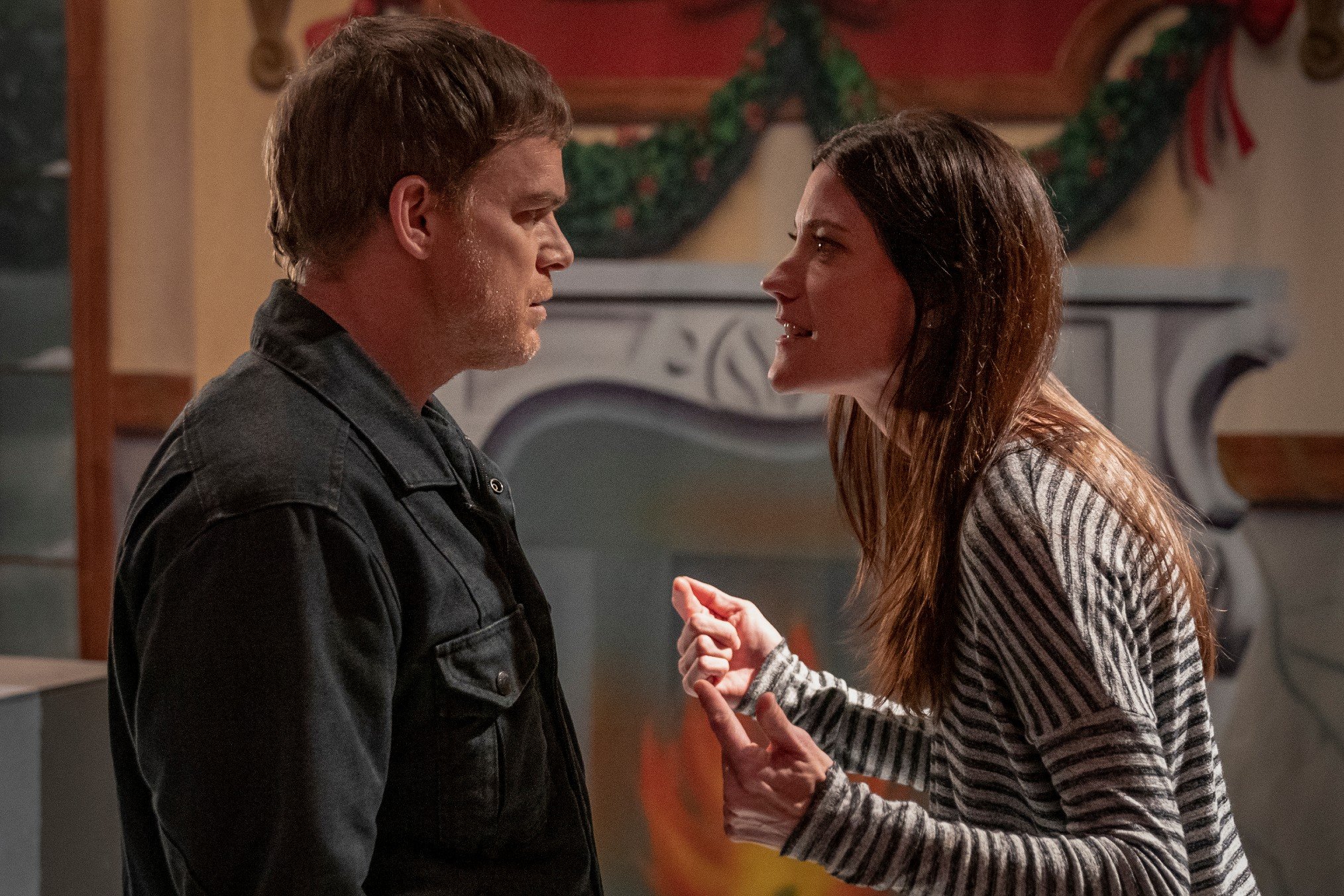Dexter: New Blood, Was It Worth It?

Dexter: New Blood was helmed by the producer of the original series Dexter seasons 1-5, Clyde Phillips, and the series has finally wrapped, but was Dexter: New Blood worth revisiting the classic series?
WARNING: Heavy plot spoilers for both the original Dexter series, and Dexter: New Blood follow, if you haven’t finished either series turn back now.
Concept From Dexter to Dexter: New Blood
After we covered the first four episodes of Dexter: New Blood, it seemed the prime-time Emmy-winning killer was back in good hands. Age and time had made Dexter sloppy at his craft. Mentioning how he “hates loose ends” when referring to the femur screw in his first victim, Matt Caldwell’s leg, showed that he isn’t the almighty infallible hammer of justice we have come to know for the original series, which is perfect for a continuation. He wouldn’t have made the same mistake with access to the criminal databases as he had in the original series.
Debra Morgan (Jennifer Carpenter) returns as Dexter’s conscience, similarly to how Harry had been through seasons 1-8 of the original series. The advancement of her character falls directly in line with how Dexter thinks and feels at the time, which is a fantastic deviation from Harry. Debra goes from ‘killing is wrong and bad,’ to the climax in which she basically says ‘he belongs on your table.’ At the end of the original Dexter, Debra is shown forgiving him for his crimes and still loves him. The conscience Debra plays is merciless and wears on his guilt through the beginning, lending credence to the idea this version of Debra is based on Dexter’s own emotion.

Dexter: New Blood constantly borrows from the magic of the original (including Debra’s foul mouth), blending the perfect amounts of nostalgia and something fresh, giving the series direction and purpose throughout. Jack Alcott’s Harrison Morgan goes through stiff growing pains with his abandonment issues at the hands of his father, and he starts acting out by ‘Dark Passenger-ing’ it up, cutting his friend Ethan, and breaking a rival wrestler’s arm because he felt like it. I guess some kids act out in different ways.
A strong point of this return, was at the climax of episode six when Police Chief Angela Bishop (Julia Jones) says she doesn’t need Jim, she needs Dexter Morgan. Angela basically conveyed what fans want in a moment, a fist pump was necessary.
New Blood
A novel idea to bring fans into the fold was by the podcast “Merry F*cking Kill” by Molly Park (played by Jamie Chung) and it has an actual episode that was recorded by the actress for fans. This is cool for audience integration, and ties the season-four fan favourite Trinity Killer, to New Blood. The episode also bluntly goes over how messed up Harrison could be with zero tact, showing the real-life “for the views” nature of the media. This immersed fans in the Dexter universe like never before.

Kurt Caldwell is Dexter: New Blood‘s main serial killer adversary, and remains the main plot foil “loose end” up until the bitter finale of the season. His attempts to bond with Harrison make him more despicable and cringe worthy somehow, than when he’s murdering victims which is exactly the point. Making him hated and deserving of ‘justice’.
Where the old formula becomes new is episode nine: ‘The Family Business’ shows the climax of the Kurt Caldwell story, where Dexter attempts to indoctrinate his son into the fold of serial killing by appealing to Harrison’s sensibilities. Dexter retells a story where he hunts a killer clown that definitely doesn’t have Joker-Esque face paint on, and details his ‘crime fighting’ style.
This is one of the highest points in Dexter: New Blood, as the iconic methodology is reintroduced from seasons past, with a victim not seen before in the series. Harrison then refers to Dexter as “kind of like Batman.” This perversion of ethics shows Dexter as the ‘good guy’ who abandons morality by comparing it to Batman, making a point to the audience that his killing nature is wrong.

After Dexter shows Harrison Kurt’s trophy cave filled with taxidermy-infused victims, Harrison is convinced killing Kurt is the only path forward, and Dexter is pleased to the point of kissing Harrison’s forehead, like a proud father.
Enter a familiar table scene for Dexter fans as something unfamiliar happens. Kurt throws his reasoning of ‘saving women’ at Dexter, while Dexter reasons with his own killing as saving others as well. This mirror imaging between the killers is apparent, and for the first time, Dexter seems more like his victim instead of a more righteous version. After the kill, Harrison almost collapses as blood touches his shoe. It is reminiscent of not only the climax of Dexter season four but episode 10 of season one. The series organically comes full circle.
After Dexter panics and attempts to make his escape after being arrested, he murders the literal nicest guy in town, Logan (Alano Miller) which shatters the code completely. While running through the woods towards his final meeting with Harrison, music from the original series serenades the audience, signalling the end. Harrison reveals his ‘Dark Passenger’ was created by abandonment. Harrison’s line “Open your eyes and look at what you’ve done!” is taken from the original pilot episode one of season one, where Dexter screamed it at the first victim the audience is introduced to. All the parallels between past seasons help the narrative stay close to the source material, yet new in its own right.

Dexter then sees all of his innocent victims that died from his actions Doakes, Lundy, Harry, Rita, and finally Debra, just like when he forces killers on his table to look at their victims—for the first time, he’s on trial. His brutal nature has come full circle.
Though there were some glaring, missed opportunities and plot holes, and general things that didn’t make sense.
Plot Issues

One of the earlier episodes of Dexter: New Blood introduces the oil tycoon Edward Olsen, and I still have no idea why. It leads fans to speculate on his importance, but he is just never seen again. This introduction gives off real Masuka’s daughter vibes from Season 8 of the original series.
Angela Bishop uses a search engine to determine the Bay Harbour Butcher also used ketamine on his victims, meanwhile it is noted that he used an M99 animal tranquilizer in the original series. This was brought up in the earlier episode when he acquires ketamine, while also lamenting over not having access to his normal tools, so it’s an odd thing to just change for convenience.
Kurt has been an active serial killer in a town with a population of under 3000 people for 25 years, and Police Chief Angela Bishop had no idea. She somehow is able to channel her inner Olivia Benson when it came to Dexter. While a great foil, her character is inconsistent to the point of pain at times.
Quite possibly the largest mistake of the season was the lack of confrontation between Angel Batista and Dexter, as it is difficult to have it introduced and not seen to a proper conclusion. When Angela and Molly Park go to the city for a police conference, it was also a little too convenient that he mentioned Dexter and Harrison by name to Angela with little reason to. It feels like the writers wanted everything to fall into Angela’s lap, story and character be damned.
A cool note on the return of Angel Batista is in his email you see familiar names, Masuka is apparently getting married. Batista and Quinn have ‘no choice but to attend the bachelor party, but the characters not reappearing was also a miss.

Was it worth it?
The series conclusion is definitely that, a conclusion. With Dexter’s demise, it’s safe to say if a second season or a spin-off happens, Dexter won’t be in the title. The ending, while satisfying and gripping, still left a lot to be desired. The plot holes and issues with continuity were cumbersome at worst, and flashback nostalgia scenes like with Wiggles were excellently done, bringing the magic completely back. The number of additions and a new location showing Dexter as more vulnerable was the right way to go to add new elements to a dormant series.

The most important part about the series renewal is that a fan-favourite series could truly make a comeback, as long as the recipe changes just enough to make the return compelling. Fans who may have felt fatigued from a rinse & repeat cookie-cutter design, Dexter: New Blood does more than enough to bring a beloved character back for a swan song season that gets all of the old parts right, but more importantly adds enough new elements to create a completely new masterpiece.
Dexter: New Blood may have an unsatisfying last 15 minutes, but it is one of the best seasons of the series to date and left with a real ending that isn’t clad in flannel and wood-cutting, an excellent continuation of a masterwork narrative. The season was definitely worth the exciting ride, from beginning to bloody end.